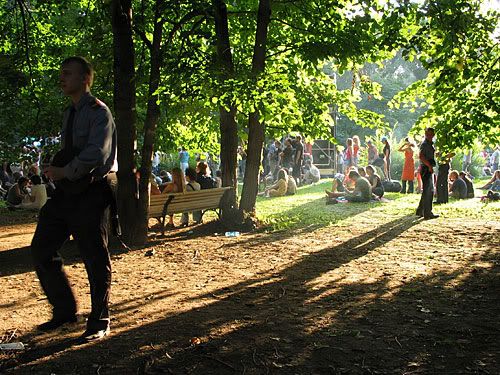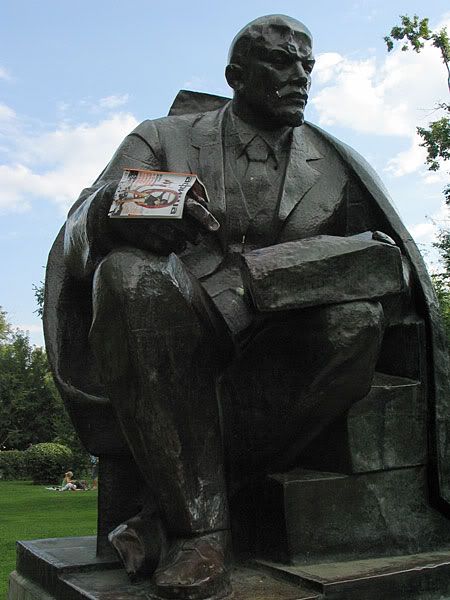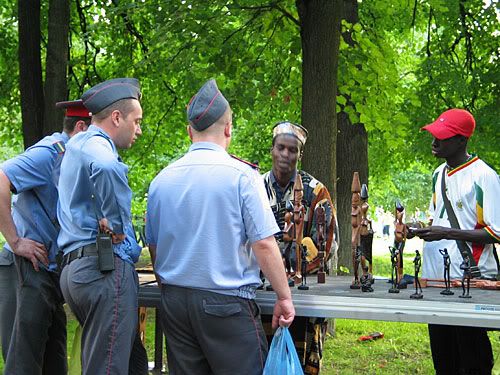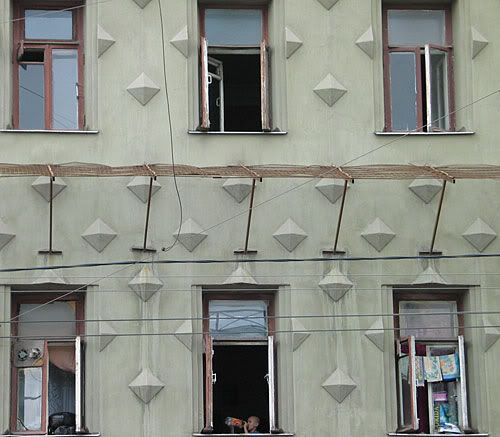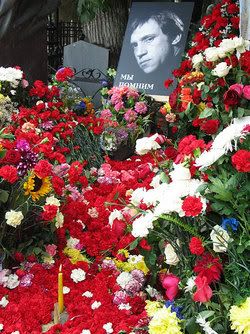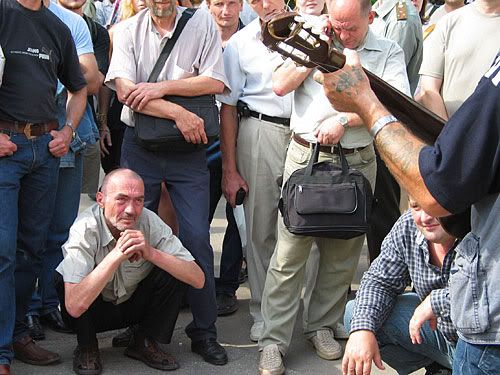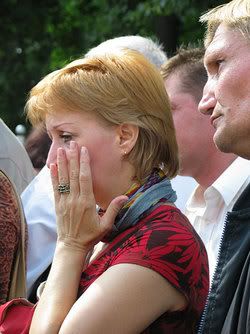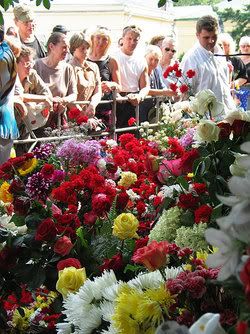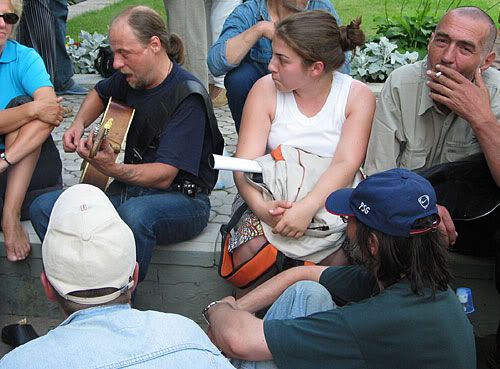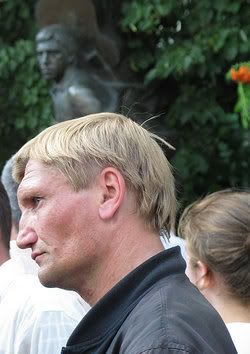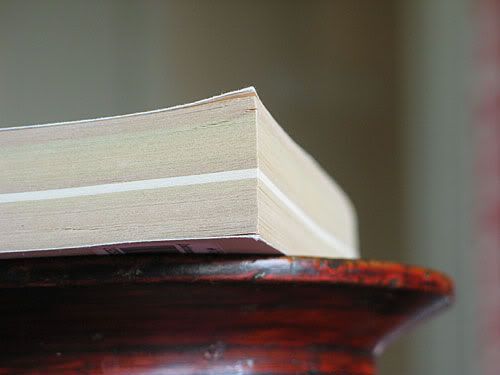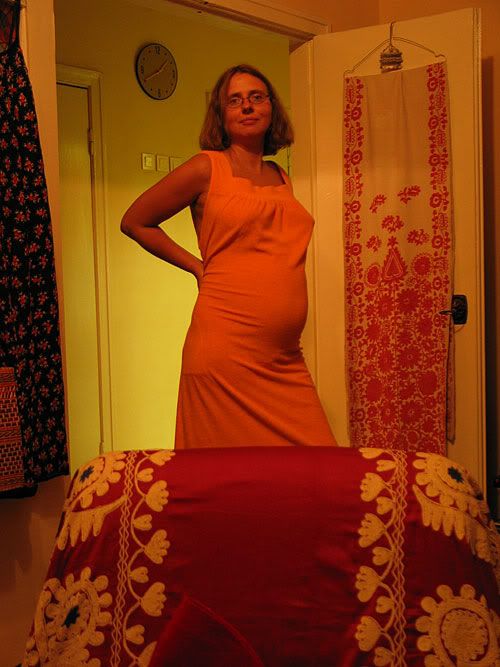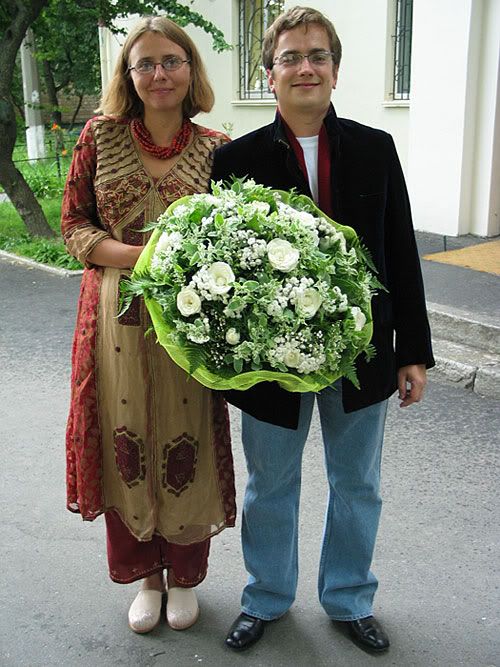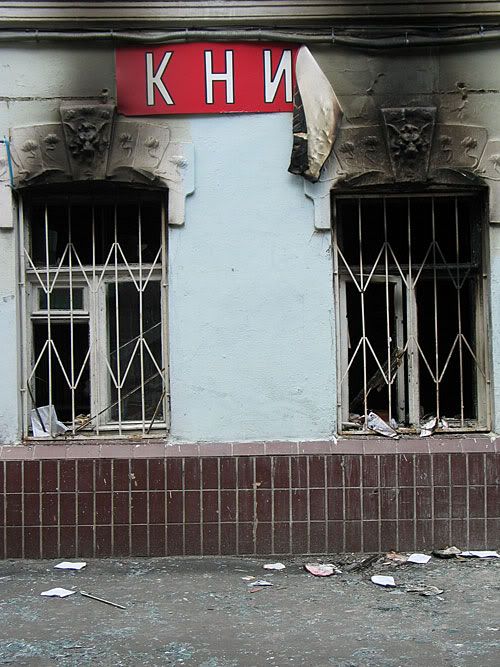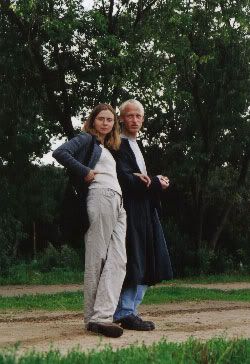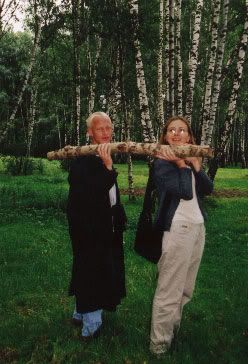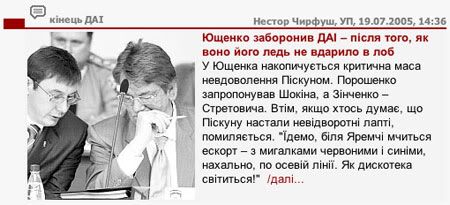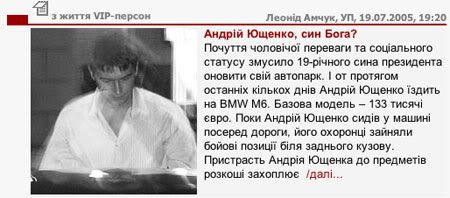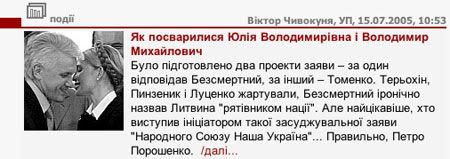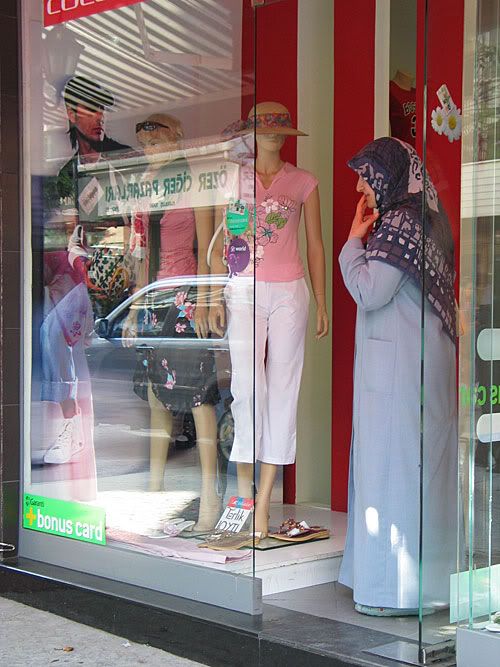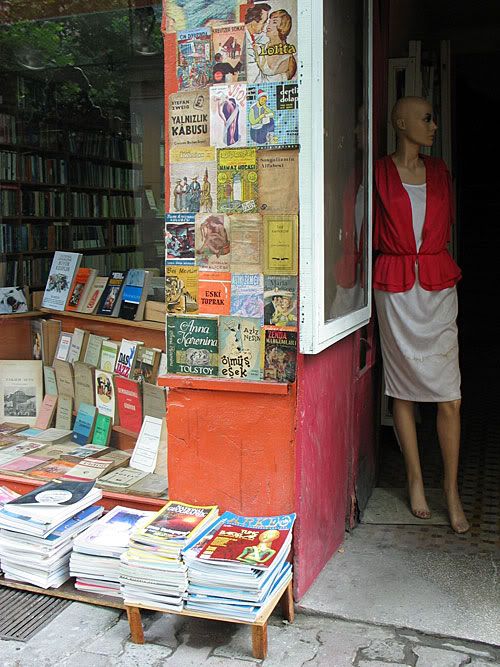Speaking of the Russian opposition, Masha Gessen has written a short piece for Bolshoi Gorod (in Russian) about Garry Kasparov's
disastrous tour of Russia's southern regions:
[...]
The story of a 5-day journey to the Caucasus and the south of Russia undertaken by Garry Kasparov, a world chess champion and currently an opposition politician, was incredible indeed. [...] In five days, Kasparov was denied access to approximately a dozen places. [...]
I'll only translate a couple more things from this text and that would be it, first, because it really hurts to try to translate Masha into the language she writes so beautifully in herself, and, second, because I really hope Masha's more detailed, English-language account of the ordeal will soon appear in the New York Times Magazine, on whose assignement she accompanied Kasparov.
(
Update: David McDuff of
A Step at a Time has translated Masha's text in full -
here! Thank you, David!)
In Moscow, a young opponent hit Kasparov on the head
with a chessboard; in the regions, the crowd attacked the chess champion and his entourage with eggs:
[...] When the bodyguard's heavy hand pushed my head down, all I heard were some screams, and then I felt something sticky flowing down my face. "Cold," I thought. "Not blood."
And here's Masha's take on why Kasparov is so unwelcome in the country he's willing to improve:
[...]
We've traveled from Moscow to Russia. Stability is somewhat lacking over there, outside Moscow. The balance over there is so fragile that, it seems, as soon as an opposition politician opens his mouth, everything will collapse. [...]
***
Marina Litvinovich has
another report on the trip (in Russian), and some pictures - of the remains of the eggs and of the handwritten signs announcing that the venues Kasparov was supposed to speak at were closed.
Someone from Ukraine left
a comment regarding the eggs and our own election last year:
Cool. We didn't have anything like this even at the height of the election campaign. You should feel flattered, though. B-) As for the eggs and stuff, the main thing is not to lose dignity. Remember Yanukovych's dishonor. B-)
***
Can't resist translating these
two sketches, also from Marina Litvinovich's LiveJournal:
non-Russia
Two sketches.
Stavropol. A woman, head of an entrepreneurs' association, says:
- To hell with it all... I'll move to Russia...
- To where?
- To Russia..
- And where are you now?
- What do you mean? In the Caucasus...
Vladivostok. A businessmen says:
- They now manufacture it all over there, in Russia...
- Where?
- Well, beyond the Ural, in Russia...
I guess what's missing is a sketch from Kaliningrad.
***
An article from Tuesday's Vedomosti - the
All-Russian Public Opinion Research Center asked 1,588 Russian citizens from 153 locations in 46 Russian regions to share their views on political opposition:
- 48 percent of the respondents believe there's no need to have opposition if "political, social and economic situation in the country is normal;"
- Two-thirds think that a "real democracy" can exist without opposition;
- 54 percent think the opposition's role is "to point out the current leaders' mistakes" and "to assist in their work;"
- 43 percent would vote for the current leaders, even though they "do not approve of all their initiatives;"
- 18 percent would not vote for "either the current leadership, or for the opposition."
